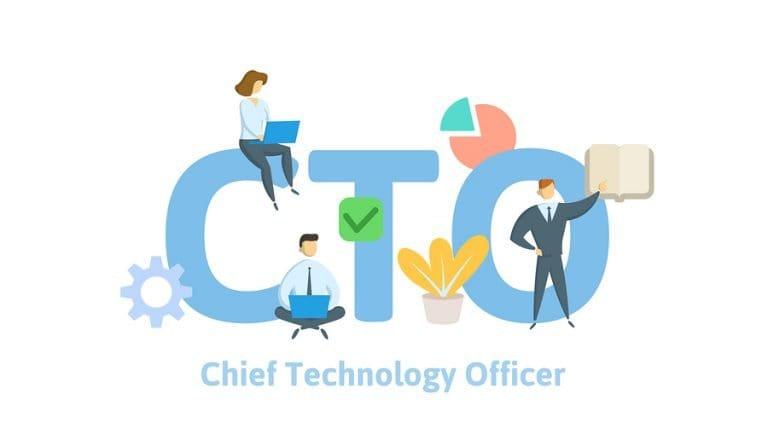Chief Technology Officer (CTO) Education: essential Degrees, Skills & Training Paths
The world of education is rapidly evolving, wiht technology taking center stage in transforming how institutions deliver learning experiences. For universities, colleges, and schools, the Chief Technology Officer (CTO) is a pivotal role, responsible for steering technological innovation and ensuring the optimal use of educational technology (EdTech). Are you interested in making a important impact on education through technology? This complete guide will walk you through everything you need to know about becoming a CTO in education, including essential degrees, key skills, and recommended training paths.
What Does a Chief technology Officer (CTO) in Education Do?
The CTO in education leads the strategic planning, implementation, and management of technology across educational institutions. this role requires balancing cutting-edge solutions with the needs of students, staff, and faculty, while ensuring cybersecurity, accessibility, and robust support systems.
- Developing and executing the institution’s digital and technology strategy
- Overseeing infrastructure, IT operations, and classroom technology integration
- Managing budgets for technology investments
- Collaborating with academic leaders to support educational goals via technology
- Ensuring data privacy, integrity, and regulatory compliance
- Leading teams of IT professionals and EdTech specialists
- Driving technology adoption and digital conversion projects
Essential Degrees for Becoming a CTO in Education
An advanced educational background is crucial for landing a CTO role in schools, colleges, or universities. Here are the most relevant degrees for aspiring CTOs in the education sector:
Bachelor’s Degree (Minimum requirement)
- Computer Science
- Facts Technology
- Software engineering
- Educational Technology
- Management Information Systems
Master’s Degree (Strongly Preferred)
- Master of Education (M.Ed.) in Educational technology
- Master of Science in information Systems, Computer Science, or Cybersecurity
- Master of Business Management (MBA) with a focus on Technology Management
- Master’s in Instructional Design and Technology
Doctorate (Often Required at Universities)
- Doctor of Education (Ed.D.) in Educational Leadership with emphasis on technology
- ph.D. in Information Systems, Computer Science, or related fields
Key Skills for a Successful CTO in Education
Beyond formal education, CTOs in education require a unique blend of technical, leadership, and interaction skills.Some of the most significant skills include:
- Strategic thinking: Ability to see the “big picture” and align technology with institutional goals.
- Technical Expertise: Deep knowledge of IT infrastructure, cybersecurity, cloud computing, learning management systems (LMS), and data analytics.
- Leadership & Team Management: Experience leading multidisciplinary teams and fostering innovation.
- Project Management: Expertise in managing large-scale tech projects, budgets, and timelines.
- Change Management: Guiding the transition to new technologies while minimizing disruption.
- Communication: Ability to explain complex technology to non-technical audiences, including educators and administrators.
- Problem Solving: Adaptability in finding innovative, effective solutions to challenges.
- Understanding of Education Trends: Staying informed of EdTech advancements, digital accessibility, and e-learning best practices.
recommended Training Paths and Certifications
To stand out in the competitive EdTech job market, pursuing additional training and certifications can enhance your expertise and credibility as a CTO candidate.
Technical Certifications
- Certified Information Systems Security Professional (CISSP)
- CompTIA Security+, Network+, or Cloud+
- Microsoft Certified: Azure Solutions Architect or Google Cloud Certified
- Cisco Certified Network Professional (CCNP)
Project Management Certifications
- Certified ScrumMaster (CSM)
- Project Management Professional (PMP)
- PRINCE2 Certification
Education Technology & Leadership Training
- certified Education Technology Leader (CETL) from CoSN
- ISTE Certification for Educators
- EdTech Leadership Workshops and Courses
Professional Progress
- Attend EdTech conferences and networking events
- Participate in industry webinars and online courses
- Engage with professional associations like CoSN, ISTE, EDUCAUSE
Benefits of Becoming a CTO in education
- Impact: Directly influence how technology shapes teaching, learning, and institutional success.
- Job Variety: Enjoy a dynamic role that combines strategic planning with hands-on technology management.
- High Demand: Educational institutions are increasingly investing in technology, making CTOs highly sought-after.
- Leadership Opportunities: Collaborate with senior administrators and key stakeholders.
- Growth Potential: Opportunities to move into executive roles or transition into other sectors within EdTech.
- competitive Salary: CTOs in education often enjoy attractive compensation packages and benefits.
Practical Tips for Aspiring Education CTOs
- Gain Diverse Experience: Work in both technical and instructional roles to build a holistic perspective.
- Focus on Soft Skills: Strengthen your leadership, communication, and change management abilities.
- Stay Current: keep up to date with the latest EdTech trends, cybersecurity threats, and regulatory changes.
- Network: connect with current CTOs and EdTech professionals for mentorship and job leads.
- Add Value: Volunteer for committees, cross-functional teams, and pilot projects that align with digital transformation.
- Show Quantifiable Impact: highlight projects where your leadership or technical expertise improved learning outcomes or operational efficiency.
Typical Career Pathway for CTOs in Education
Charting a path toward the Chief Technology Officer position in education often includes experience in various technology and leadership roles such as:
- Instructional Technology Specialist
- IT Support or Systems Administrator
- Network or Security Engineer in education
- Director of Information Technology or EdTech
- Technology Integration Coach or Coordinator
- assistant CTO or Chief Information Officer (CIO)
Each of these positions equips you with practical insights into the unique technology challenges faced in the education sector and prepares you to lead at the highest level.
Conclusion: Paving Your Way as a CTO in Education
Becoming a Chief Technology Officer in education is both a rewarding and challenging career path. By acquiring the right degrees, certifications, and skills – along with practical experience and a passion for educational innovation – you can play a transformative role in shaping the future of learning. start building your expertise today and position yourself for a leadership journey that will leave a lasting impact on students, educators, and institutions alike.

